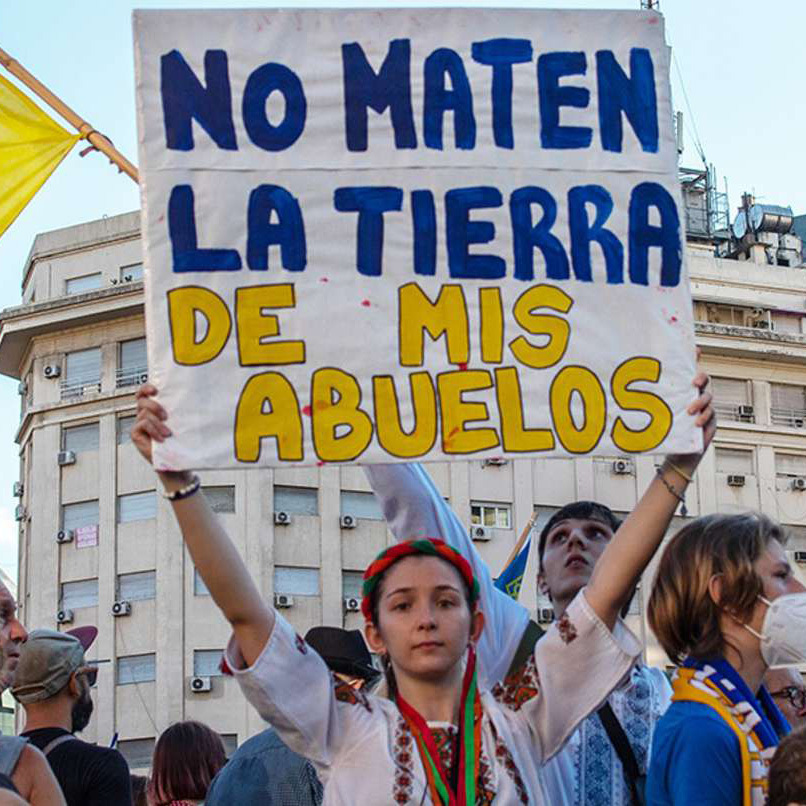The Effects of the Russian War in Ukraine on Latin America
Adhemar Mineiro, Carlos Pabón Ortega, Francisco R. Rodríguez, Lenny Ureña Valerio

Friday, April 29, 2022 | 02:00 pm
Virtual
About:
This event will address some of the main effects that the war in Ukraine is having on Latin American countries. By focusing on Brazil, Puerto Rico, and Venezuela, the speakers will share their insights on the political, cultural, and
economic consequences of the war. Adhemar Mineiro will approach the topic from the agricultural sector in Brazil, Carlos Pabón Ortega from the perspective of the political left in Puerto Rico, and Francisco R. Rodríguez from the view of oil markets and US-Venezuelan relations.
Adhemar Mineiro is an economist who graduated from the Federal university of Rio de Janeiro (UFRJ) and is currently doing Ph.D. studies at the Federal Rural University of Rio de Janeiro (UFRRJ). He worked from 1992 to 2018 in DIEESE (Departamento Intersindical de Estatísticas e Estudos Sócio-Econômicos – Inter Union Department for Statistics and Sócio-Economical Studies), and from 1986 to 1992 in IBASE (Brazilian Instituto of Social and Economics Analysis). Since May 2003 he advises REBRIP (Brazilian Network for the Integration of People, a network of Brazilian social movements and NGOs) on trade and development and Brazilian foreign relations. From February 2010 to 2013, he was also economic advisor to TUCA (Trade Union Confederation of Americas). Former member of the board of the Economists Union of Rio de Janeiro (1987-2001), president of the Regional Council of Economists of Rio de Janeiro (1997-1998), and member of the board of the Brazilian Federal Council of Economists (1999 to 2001), where he was coordinator of the working group on foreign affairs. From 2000 to 2002, he was also president of AEALC (Latin American and the Caribbean Economists Association), and since 2019 member of the Coordination in Rio de Janeiro of ABED (Brazilian Association of Economists for Democracy).
Carlos Pabón Ortega is professor in the Department of History at the University of Puerto Rico, Río Piedras Campus. He received his Ph.D. in History from University of Massachusetts, Amherst. He is the author of Nación postmortem: ensayos sobre los tiempos de insoportable ambigüedad (San Juan, P.R., Ediciones Callejón, 2002); Polémicas: política, intelectuales, violencia (San Juan, P.R., Ediciones Callejón, 2014); Mínima política: textos breves y fragmentos sobre la crisis contemporánea (San Juan, P.R., Ediciones Callejón, 2016); Después del “fin de la historia”: ensayos sobre los tiempos presentes (San Juan, P.R., Ediciones Laberinto, 2020); and more recently, Historia, memoria y ficción. Debates sobre la representación de la violencia extrema (San Juan, P.R., Ediciones Laberinto, 2022). He is also the editor of El pasado ya no es lo que era: la historia en tiempos de incertidumbre (San Juan, P.R., Ediciones Vértigo, 2005) and a contributor to numerous journals and newspapers including 80 Grados (Puerto Rico), Historia y Sociedad (Puerto Rico), Nueva Sociedad (Argentina), Jacobin: América Latina, and El Nuevo Día (Puerto Rico).
Francisco R. Rodríguez is a Venezuelan economist, and currently director and founder of Oil for Venezuela, a non-profit organization focused on finding solutions to Venezuela’s humanitarian crisis. He received an M.A. and Ph.D. in economics from Harvard University and has an undergraduate degree in economics from Venezuela’s Universidad Católica Andrés Bello. Rodríguez has taught economics and Latin American studies at the University of Maryland at College Park, the Instituto de Estudios Superiores de Administración (IESA), and Wesleyan University. He has held prominent positions in the public and private sector and international organizations, including Head of the Economic and Financial Advisory of the Venezuelan National Assembly (2000-2004), Head of the Research Team of the United Nations’ Human Development Report Office (2008-2011) and Chief Andean Economist of Bank of America (2011-2016). He is currently the 2021-22 International Affairs Fellow in International Economics of the Council on Foreign Relations. Rodríguez has published more than fifty research papers in academic outlets, including the American Economic Journal, Journal of Economic Growth, Journal of Macroeconomics, and Economic Development and Cultural Change.
Notes:
This event is free and open to the public.
